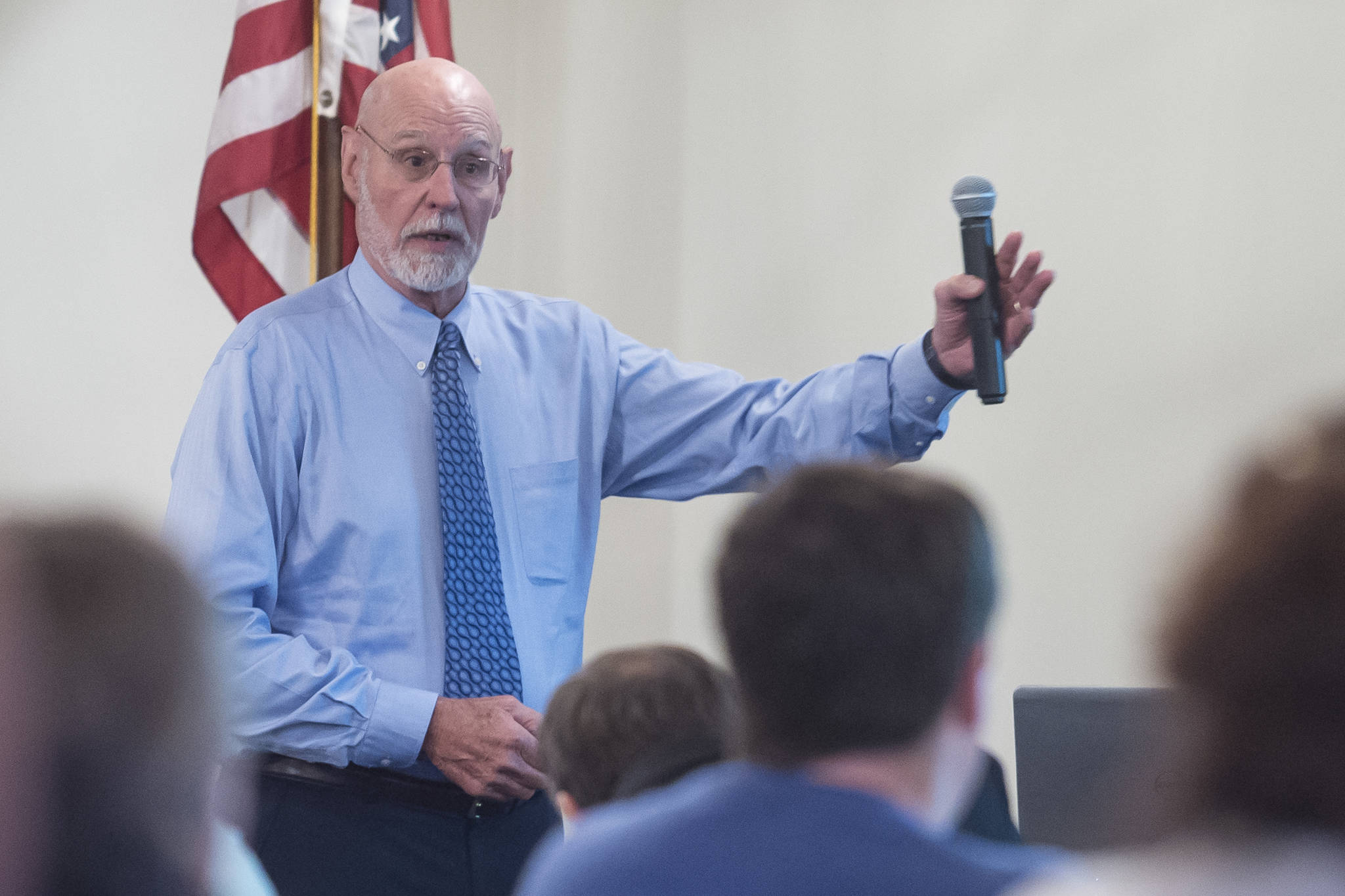Mark Hamilton, head external affairs for the group pushing the controversial Pebble Mine project near Bristol Bay, told a crowd at the Greater Juneau Chamber of Commerce Luncheon on Thursday that he’s not worried for the future of the project under a habitat protection measure up for a vote in the Nov. 6 statewide election.
Ballot Measure 1, known as Stand for Salmon, would change how the State of Alaska permits development on salmon habitat. A point of contention between backers and opponents has been what kinds of building would be permitted under the law and which would be denied.
[Salmon ballot measure splits Native tribal, corporate interests]
Some have speculated that the measure would kill the Pebble project. But Hamilton told the Chamber crowd that existing permitting requirements are so strong, he’s not concerned new requirements would squash Pebble.
“I don’t worry so much about what it would do to the mine. The mine is already in a process that’s just brutally difficult and very, very specific, very science-based. Frankly, I think Pebble Mine would probably do OK,” he said.
The Pebble Limited Partnership has donated $800,000 to Stand for Alaska, the main group opposing Ballot Measure 1, according to the Alaska Public Offices Commission.
Hamilton is against the measure, he said, because he believes it will make routine building in Alaska more difficult, something the measure’s backers have called a mischaracterization.
“It’s the church that wants to expand their parking lot that’s in trouble here. It’s normal, reasonable projects. I don’t fight against this thing because of Pebble Mine, I fight against this thing because all of the other things it would face,” Hamilton said.
Ballot Measure 1 creates different permitting paths for differently sized projects. The measure would provide for three types of permits for development on anadromous (e.g. salmon) fish habitats. The Alaska Department of Fish and Game could issue a general permit — a single permit that applies to many people — for certain activities.
For other developments on anadromous fish habitat, Stand for Salmon would establish a two-track permitting system, one for major projects and one for minor projects.
Projects that pose a risk of “significant adverse effects” to anadromous fish habitat would be considered major, while ones that don’t have potential to for significant harm would be considered minor.
Interference with spawning, impairment or degradation to habitat, and changes that increase fish mortality are all considered significant adverse effects, according to the measure’s language.
While several state commissioners have said the measure would make some construction projects impossible, Fish and Game has written in an official FAQ that the measure would not stop development in Alaska.
The Pebble Project, 100 percent owned by mining company Northern Dynasty, is currently applying for its latest round of permits. The copper and gold mine wouldn’t be open for about least four-six years, Hamilton said.
• Contact reporter Kevin Gullufsen at 523-2228 and kgullufsen@juneauempire.com. Follow him on Twitter at @KevinGullufsen.

